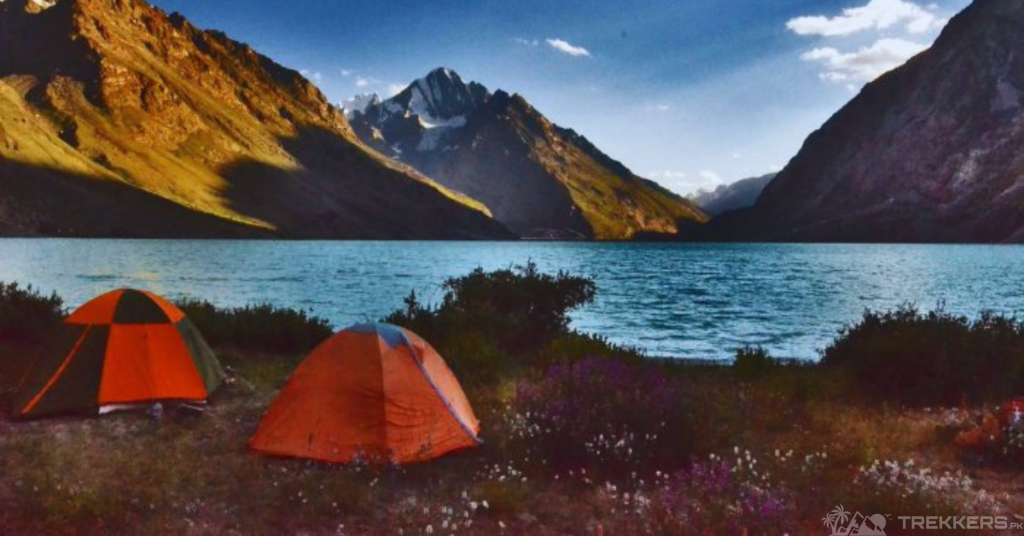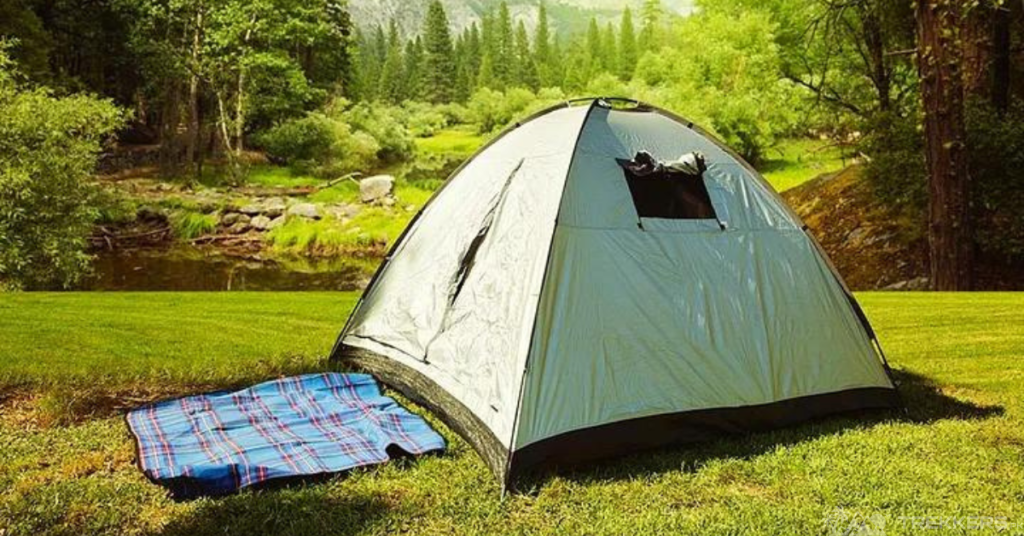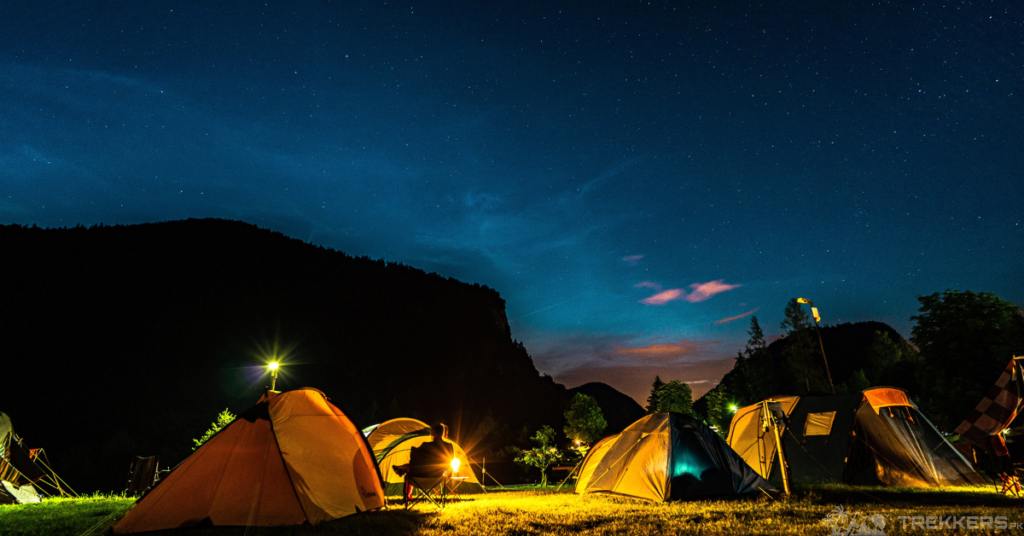Want an escape from the utter chaos of the city? Then camping is the best getaway for you. Camping under the starry night and reveling in the beauty of nature is a tempting experience no one can resist saying yes to. It is a broad activity offering a great deal of expertise for everyone. You can either have a peaceful and pleasant experience or have the time of your life while having the most adrenaline-filled experience.
You can disconnect from the world and connect with breathtaking nature. The idea of just being surrounded by none of our gadgets and living in the moment can be quite refreshing. Camping comes with an experience full of adventure and thrill but can still be stressful for people who are partaking in it for the first time.
Camping for the first time can be stressful for several reasons. Being out of your comfort zone is not necessarily something anybody wants. That is why the unfamiliarity of the surroundings and not having any technology to help you can be a reason for stress.
Beginners tend to overthink and thus get overwhelmed by minor contributing factors like preparing for the trip, the unpredictability of the weather, wildlife encounters, and even the thought of setting up the camp.

There is no need to worry now! This article will cover everything a beginner needs to be aware of before camping for the first time.
By following these measures, one will surely have a safe and pleasing time camping.
Gear:
The most integral part of a camping trip is packing the appropriate essentials for it. You don’t want to overpack as keeping track of all the stuff you brought with you can become a hassle. That is why it’s best to pack lightly and only bring the essentials. The basic camping gear that is required camping is:
- A durable tent that can be used in any weather.
- A portable and insulated sleeping bag.
- Weather-appropriate clothes (padded and warm clothes for winter and lightweight clothes for summer).
- A flashlight
- A first aid kit for emergencies.
- Cooking utensils and a camping stove.
- Compact and calorie-rich meals.
- A reliable backpack.
Researching which brand works best for you by reading reviews is helpful, too. Some of the well-known brands are:
- Marmot and The North Face for sleeping bags.
- REI (Recreational Equipment, Inc.) For tents.
- Columbia sportswear for clothing.
- Therm-a-rest for sleeping pads.
- Garmin for GPS.
Before your camping trip, you should check these brands and settle with whatever you think most suits you. Always consider your destination, the weather, and your needs before buying the essentials that you require.
Packing can sometimes be difficult, take a look at this article’s list to make sure you’re carrying all the required items:
Frequently Asked Questions About Traveling Solo
Selecting A Suitable Campsite:
Selecting a suitable campsite for you is also quite important. You need to be at a location where you can ensure your own and your teammates’ safety and have access to water sources. Taking safety measures for the presence of wildlife and evaluating the accessibility of campsites are also some of the integral factors to consider while selecting a campsite.
Setting The Tent:
After choosing a suitable campsite, the next step is usually setting up the tent for your night stay. Setting up the tent is not as difficult as you might think it is. By following the instructions given in the manual, you will be easily able to get a tent where you can sleep for the night.
The “Leave No Trace Behind Rule”:
It is integral to consider the “Leave no trace behind” principle, as the conservation of nature should be your priority as a responsible camper. Choosing a durable surface as your campsite, knowing the regulations and guidelines of the camping area, and minimizing campsite alterations are some of the ways to be respectful of your surroundings. Pick out all the trash and follow proper waste disposal techniques. It is also necessary to leave the plants, not disturb the wildlife, and be considerate of other visitors.

Campfire:
One of the main things that campers need to be careful of is the impact of campfires. By using a camp stove, checking fire regulations, and, all in all, just preventing the excessive use of fire, you can minimize the impact of campfires and prevent the spreading of wildfires.
Meals:
Another concern that the first timers have while camping is what meals they can plan or cook for them that are quick and easy to make. Some of the meals that you can cook while camping are campfire quesadillas, one-pot pasta, campfire tacos, and many more. Prepping the meals before your trip, opting for reusable containers, and having meals that can be made in a single pot can work wonders for you while camping.
Food Preservation:
Campers also need to be cautious about food storage to prevent attracting wildlife. Using bear-resistant containers and sealed containers, being mindful of the smells, and cleaning up thoroughly are some ways to ensure your safety from wildlife, like avoiding cooking near the sleeping areas.
Encountering Wildlife:
The mere thought of interacting with wildlife is the reason why so many people avoid camping in the wild. If you encounter wildlife unexpectedly, you need to maintain a safe distance, stay calm and quiet as your sound of panic can startle the animals, never feed them, and respect their space. There are higher chances of you not interacting with any of the wildlife if you follow the local regulations of the park or destination you are going to. Just stay on the designated trail, camp in the designated areas, and avoid trashing the place you’re camping at.
Weather Preparedness:
Being in nature can be a different experience because of its unpredictability. While camping, you need to check the weather forecast to stay informed about the potential changes in the weather. Being aware of the weather is also necessary while packing, as you will have to pack weather-appropriate clothes, footwear, and gear to have a peril-free journey. You also can carry a waterproof map, a compass, and a communication device to help you in unexpected circumstances.
Navigation Tools:
Carrying navigation tools is also quite helpful in having a safe and secure journey. By having tools like maps, a compass, a GPS device, brief information about the landmarks and features of the place you’re at and planning the route before your trip you will be able to access the unknown area easily. These gadgets can help you not get lost in unexpected situations and will give you the confidence you need.

Conclusion:
Everyone needs to understand that camping does not only come with a sense of thrill. But you, as a camper, must also be respectful of nature and wildlife along with your fellow campers.
By following all these tips and safety measures for camping, you will be able to have an adventurous camping trip and will be able to embrace the breathtakingly entrancing nature.